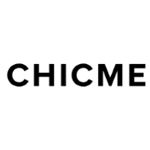Disclaimer
https://ourpostalcode.com is owned and operated by and may contain advertisements, sponsored content, paid insertions, affiliate links or other forms of monetization.
https://ourpostalcode.com abides by word of mouth marketing standards. We believe in honesty of relationship, opinion and identity. The compensation received may influence the advertising content, topics or posts made in this blog. That content, advertising space or post will be clearly identified as paid or sponsored content.
is never directly compensated to provide opinion on products, services, websites and various other topics. The views and opinions expressed on this website are purely those of the authors. If we claim or appear to be experts on a certain topic or product or service area, we will only endorse products or services that we believe, based on our expertise, are worthy of such endorsement. Any product claim, statistic, quote or other representation about a product or service should be verified with the manufacturer or provider.
This site does not contain any content which might present a conflict of interest.
makes no representations, warranties, or assurances as to the accuracy, currency or completeness of the content contain on this website or any sites linked to or from this site.
Contact
If you have any questions regarding this policy, or your dealings with our website, please contact us here:

























